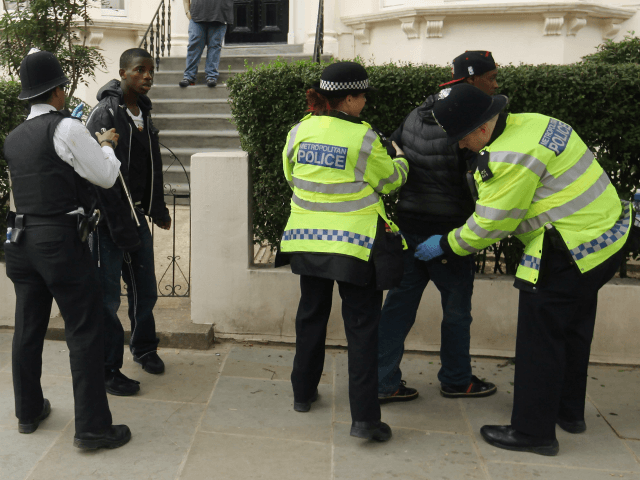London crime gangs are becoming more organised, ruthless, and are increasingly driven by illegal drugs profit, with some gangs forming alliances the way businesses sell franchises.
Gangs are also treating postcodes as commercial marketplaces rather than territories to be protected from outsiders, according to a report conducted by London South Bank University and commissioned by Waltham Forest Council.
“The first major development is the emergence of a more organised and ruthless operating model focused on the drugs market and driven by a desire for profits,” authors of From Postcodes to Profit write.
“This more business-oriented ethos has changed the meaning of territory. Instead of an emotional sense of belonging to a postcode that needs to be defended, territory is valued as a marketplace to be protected,” the report, published Tuesday, added.
Researchers focused their year-long study on the ‘Mali Boys’, a 40-strong gang operating in the north-east London borough of Waltham Forest, which has seen three gang-related killings this year. Older members tend to be ethnic Somalis, but younger members, including children, are coming from other backgrounds.
“The Mali Boys are heavily involved in drug supply and have a street reputation as a violent and feared group across the borough,” the report says. “They lead the new economically driven operating model and are less interested in postcode rivalries, unless it is to protect their drug market.”
Khan’s London: Gang Warfare Kills More than Terror, Despite Tightest Gun Controls Firearms Are ‘Easy’ to Buy https://t.co/uGkyI60BrM
— Breitbart London (@BreitbartLondon) April 5, 2018
“[The Mali Boys are] the most business driven, violent and ruthless of the gangs but also the most secretive, working hard to remain anonymous to the police and local agencies,” it adds.
An unnamed source told researchers that the Somali gang had formed alliances with other gangs in the borough to maximise coverage of their illegal products, saying: “It’s almost like a franchise, like McDonalds or Benetton where the Mali Boys have got a very effective pyramid structure, business plan, but instead of burgers and woolly jumper its Class A drugs and cannabis.”
There are an estimated 250 gangs in London involving some 4,5000 people with 12 active gangs in Waltham Forest alone. With the drugs market getting to saturation point in London, some gangs are expanding their businesses by developing “county lines” to other towns.
Gangs are using girls and young women as drug mules to transport product along these county lines because they are lower profile and to take advantage of the fact that there are fewer female police officers who can search them.
A Weekend in Khan’s London: Man ‘Shot in Face,’ Woman ‘Slashed in Face’, Attempted Knife Murder https://t.co/506b16gqYe
— Breitbart London (@BreitbartLondon) June 3, 2018
The report also found that some drug runners are as young as 12 and that child sexual exploitation (CSE) “is becoming more prevalent in gang culture” with Waltham Forest Council telling authors that “each month there’s between 25 and 35 open CSE cases at any one time”.
In addition, researchers warned of “potential links between street gangs and terrorist networks” as they are said to be “recruit[ing] from the same group of people”. Jihadist recruiters are using “redemption narratives” on former gang members to pull them into Islamist terrorism and extremism by “satisfying the personal needs and desires that led them to become involved in crime – the need for power, violent and a strong identity that is anti-establishment”.
On Wednesday, police carried out a series of dawn raids in Tower Hamlets, East London, as part of an intelligence-led operation by the borough’s gang unit to crack down on drug dealing, resulting in 27 arrests and the seizure of drugs, cash, and weapons.
Under Labour’s Mayor Sadiq Khan, London has been in the grips of a crime wave with knife and gun crime surging by 30 and 16 per cent respectively. More than 60 people have been killed in the nation’s capital this year.
Police have said the surge in violence is partly driven by the “postcode war” over the drugs trade and that some victims, like 17-year-old Tanesha Melbourne-Blake who was killed in a drive-by shooting in April, may have simply been in the wrong place at the wrong time.

COMMENTS
Please let us know if you're having issues with commenting.